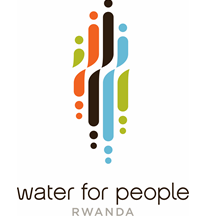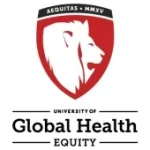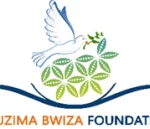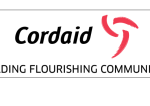Water For People (WFP) is a global nonprofit working across nine countries, bringing together communities, local entrepreneurs, and governments to build and maintain water and sanitation services that will last. We have a sustainable solution to end the global water and sanitation crisis, and our employees across the world help drive this solution.
Website: https://www.waterforpeople.org
TERMS OF REFERENCE FOR THE DEVELOPMENT OF RULINDO, GICUMBI, AND KARONGI DISTRICTS WASH INFRASTRUCTURE DISASTER RISK REDUCTION AND CONTINGENCY PLANS
1. INTRODUCTION
Water For People is an international non-governmental organization (NGO) that works with people and partners to develop innovative and long-lasting solutions to developing countries’ water, sanitation, and hygiene problems. The organization strives to continually improve, experiment with promising new ideas, and leverage resources to multiply its impact.
Water For People, Rulindo District, and the Ministry of Infrastructure, (MININFRA), entered into a partnership to implement Rulindo Challenge Program in 2010, GICUMBI and KARONGI WASH Programs, respectively in 2016 and 2020, to bring safe and sustainable water, sanitation, and hygiene services to the entire population of the mentioned districts.
After more than 10 years of hard work in Rulindo District, 8 years of investment in infrastructure development and sustainability activities related to WASH in Gicumbi District, and almost five years of investment in Karongi District, everyone (every school, every community, every health care facility), has access to safe drinking water, adequate sanitation, and improved hygiene practices. However, due to the topography of the districts mentioned above, water and sanitation infrastructures have been from time to time, threatened by landslides due to heavy rains leading to interrupted water and sanitation services and frequent rehabilitation of water infrastructures, especially during rainy seasons.
To address these seasonal WASH crises, Water For People, in partnership with Rulindo, Gicumbi, and Karongi Districts, plans to hire services of a qualified consultancy firm to develop a District WASH Disaster Risk Reduction (DRR) and Contingency Management Plan (DWCMP), which will help Rulindo, Gicumbi and Karongi Districts to mitigate the above-mentioned hazard/disaster and ensure sustainable WASH services in the district.
2. OBJECTIVE OF THE CONSULTANCY
General Objective
The objective of this consultancy is to develop a WASH Contingency Plan aimed at establishing a series of preparatory measures aiming at preventing or reducing impacts on WASH services in case disasters occur to the infrastructures in the three districts and establishing comprehensive disaster risk reduction strategies adopted to WASH infrastructure in the Rulindo, Gicumbi, and Karongi districts of Rwanda for the purpose of enhancing community resilience against potential disasters impacting WASH services.
Specific objectives
- Identify and map climate change-related risks affecting WASH infrastructures.
- Identify and map all infrastructures that are prone to disasters.
- Conduct a thorough risk assessment to identify vulnerabilities in existing WASH infrastructure.
- Develop operational procedures for effective response during various disaster scenarios.
- prepare the strategy to Enhance community engagement and capacity building for local stakeholders in disaster preparedness.
- Analyze potential hazards affecting WASH infrastructure
- Assess the current state of WASH facilities and identify critical vulnerabilities.
- Gather data on historical disaster impacts on WASH services.
- Establish communication protocols for timely information dissemination.
- Create a resource inventory for emergency response
- Develop guidelines for infrastructure resilience improvements (e.g., flood-proofing wells).
- Recommend training programs for local communities on emergency preparedness.
- Assess the social economic impact of the identified risks.
- Identify and suggest actions required to mitigate the identified risks.
- Define the roles and responsibilities of different stakeholders responsible for each provision in the contingency plan given the findings and recommendations per scenario.
- Propose engineering solutions, such as retaining walls or soil stabilization techniques, to improve infrastructure resilience in high-risk areas.
- Conduct flood risk assessments using hydrological and hydraulic modeling to map flood zones around critical WASH infrastructure
- Propose design modifications for new and existing WASH infrastructure to enhance climate resilience
- Develop structural and non-structural measures for flood protection, such as the construction of levees, flood walls, or the integration of green infrastructure solutions.
- Develop guidance on resilient design principles tailored to local climatic conditions, focusing on minimizing water loss, increasing energy efficiency, and reducing maintenance requirements.
- Assess geotechnical risks in areas prone to landslides or subsidence, particularly for critical WASH facilities located on sloped or unstable terrain.
- Conduct structural assessments of existing WASH infrastructure to identify areas susceptible to physical failure under various disaster scenarios.
- Propose the implementation and monitoring plan of the proposed mitigation measures to avoid or reduce the identified risks per scenario within a specific timeframe.
The consultancy will propose an appropriate methodology to deliver on the proposed assignment. This will include, but not be limited to the following:
- Review of existing documentation on disaster management including but not limited to National Disaster Management plans and laws,
- Collecting data from stakeholders and fields.
- Review of existing documentation of water supply systems of each district (maps and shapefiles).
3. SCOPE OF WORK
The consultant will undertake a review of relevant literature, including but not limited to the following:
- National DRRM policy
- National Preparedness Plan for WASH sector in Rwanda
- National Water and Sanitation Policy
- Integrated Water and Sanitation Master Plans
- Climate Risk Assessment and Climate Rationale for Rwanda
- Guidelines for Climate Resilient WASH programming in Rwanda
- District WASH investment plans
- Other relevant literature
The consultant will carry out an extensive situational analysis of all infrastructure of Karongi, Rulindo, and Gicumbi Districts and identify those that are prone to landslides, flooding, heavy rains, and other climate-related factors that could impact the water services. The Consultant will be required to develop a detailed district plan of critical mitigation measures that would be considered by the districts and the national governments while planning for future climate change adaptation and resilience.
The consultant is required to conduct the same assessment on critical sanitation infrastructures (fecal sludge treatment plants and dump sites) and suggest appropriate solutions to mitigate challenges that are affecting sanitation facilities and related to climate change.
The contingency plan will be the strategy to manage and deal with any identified risk, mainly landslides and floods.
4. METHODOLOGY
The successful consultant will propose methodologies to be used to deliver the assignment and these will be validated during the inception phase.
DELIVERABLES
Technical deliverables
- Geological and landslide susceptibility analysis report for each district: The consultant will compile and analyze relevant datasets including but not limited to topography, geology, hydrology, land use, soil characteristics, rainfall data, and historical landslide occurrences. Using an appropriate methodology, the consultant will analyze the landslide susceptibility and validate it based on the comparison with historical landslide data and adjusting parameters as necessary. In this case, slope stability analysis will be conducted to fully validate the susceptibility of landslides in a particular area.
- Detailed disaster risk assessment on WASH infrastructure for each district based on geological and hydrological status
- Hydrological and hydraulic model of each district using open-source software (such as HEC-HMS and HEC-RAS): The estimated areal rainfall will be used for frequency analysis where extreme rainfall events with 5, 10, 25, 50, and 100 years return periods will be estimated for each delineated sub-catchment in each district. Once the hydrological and hydraulic models have been developed, the Consultant will model various flooding scenarios considering climate change and land use change. At least the following scenarios will be modeled: current and future scenarios taking into account climate change and land use changes, these two scenarios will be validated by past event data that had occurred in the area referring to meteorological historical data. During the delineation of sub-catchments within the districts, it may happen that the district’s boundaries may not coincide with sub-catchment boundaries. Therefore, the consultant will consider the boundary of the contributing sub-catchment regardless of the district boundary.
- Provision of a detailed risk map for each scenario per each district
- Identification of water supply and sanitation infrastructures that are prone to risks in each scenario.
- Develop Comprehensive DRR strategies that enhance the resilience of WASH infrastructure in Rulindo, Gicumbi, and Karongi districts.
- Develop well-defined contingency plans that facilitate quick response during emergencies affecting water supply and sanitation services.
- Propose design modifications for new and existing WASH infrastructures to enhance climate resilience
- Propose engineering solutions (with detailed specifications), such as relocation, retaining walls, and soil stabilization techniques to name a few, to improve infrastructure resilience in high-risk areas.
- Provision of costed mitigation plans for risks associated with each climate change scenario.
- Produce a training manual on the WASH Contingency plan and provide training on identified district and sector staff.
- Provision of actionable climate resilient plan for existing infrastructures
Delivering timeline and expected reports.
- Inception Report: After 14 days the consultant will provide the preliminary report with a literature review, methodology, content outline of the WASH contingency plan, and proposed changes on the TORs if any.
- Interim report: After data collection and analysis for all water supply systems in each district, this is an intermediate report with the extent of risks assessed and will be submitted on the 60th day upon contract signature. The interim report will be validated in each district.
- Draft Report: The draft WASH contingency plan taking into consideration the approved scenario and proposed costed actions to mitigate the impact of identified risks per water supply system will be submitted on 80th days after the contract signature. The draft report will be validated at each district.
- Validation workshop: The validation workshops will be organized at each district 5 days after the submission of the draft report.
- Final report: The final report will consider all comments and inputs from the validation workshops and will be submitted 5 days after the validation took place.
Note: Activities must be done concurrently in all districts
5. QUALIFICATION REQUIREMENT
The consultancy firm should meet the following requirements:
Administrative documents:
- Company address in Rwanda
- The company should be registered in Rwanda
- Valid tax clearance of RSSB (Rwanda Social Security Board and Rwanda Revenue Authority);
- Valid tax clearance of RRA (Rwanda Revenues Authority)
- The firm should have EBM (electronic billing machine);
- VAT Registered Certificate (if applicable);
- Demonstrated Financial capacity certified by at least 2 years of Audited Financial statements.
Experience:
- At least 5 years of relevant experience as a firm
- At least three similar assignments completed, with certificates of good completion within the last 5 years.
- Joint venture with an international consulting firm is accepted but not a requirement, subject to submission of notarized letters for each Consulting firm in JV.
Personnel
For this assignment, the company is expected to have diverse skills to deal with the multi-sectoral concept covering water, sanitation, hygiene, and climate change mitigation and adaptation.
Team members will have the following qualifications:
- Team Leader: Master’s degree in water resources management or environmental management with at least 8 years ‘experience in climate resilience-related activities with a focus on WASH infrastructures.
- Certified Civil/Hydraulic Engineer (15: 5 per district): Bachelor’s degree in civil engineering with at least 5 years experience in WASH infrastructure development with a deep understanding of climate resilience.
- Hydrogeologist specialist: With a master’s degree in geology or hydrogeology with at least 5 years’ experience.
- Senior Hydrologist with hydrological and hydraulic modeling background: Master’s degree in hydrology, or related field, with 5 years of experience in hydrology and hydraulic modeling,
- Environmental and Social safeguard specialist: Master’s degree in Environmental Management with at least 5 years.
- GIS Mapping and Database specialist: Bachelor’s degree in Geography or land surveying, with 5 years experience in land surveying and land use mapping.
Note: The staff in the offer must confirm his/her availability throughout the duration of the assignment and can be replaced upon official request and approval by the client by a staff with similar qualifications and experience.
6. DURATION
The Consultancy is estimated to take no more than 90 calendar days including validation meetings.
7. TYPE OF AWARD
This will be a contract with clear payment schedules based on deliverables. The winner of this contract shall be responsible for submitting an original performance guarantee from a licensed bank representing 10% of the total contract amount and valid up to one extra month after the final validation of deliverables.
8. SOURCE OF FUNDS
Water For People.
9. COPYRIGHTS
Copyright of all materials for this assignment will be retained by Water For People in Rwanda or districts.
10. PROCUREMENT
Proposals will be evaluated using the following criteria: administrative requirements, the profile of team members, required experience, and cost as follows.
- Administrative documents/company profile: PASS or FAIL. Only the bidders with a PASS note will continue to the second stage of evaluation.
- Technical Proposal:
- Administrative documents: PASS/FAIL
- Company Experience: 50%
- Profile of the team members ( civil/hydraulic engineers score 25% while others share 25%): 50%
1st stage: Administrative documents: PASS or FAIL. Only the bidders with a PASS note will continue to the second stage of evaluation.
2nd stage: Technical proposal: 100% (that includes the work-plan, company experience, and profile of the team members with CV and academic documents). The pass mark is fixed at 70%
3rd Stage: Financial Proposal: All proposals that will score 70% from the technical evaluation shall have their financial proposals evaluated. The successful bidder will be the one with the lowest quote.
The selected vendor will be contractually required to comply with Water For People’s Vendor Code of Conduct Vendor code OK.pdf and will be required to deliver a Conflict-of-Interest Certificate prior to execution of the contract. The Conflict-of-Interest Certificate requires the disclosure of any potential or actual conflicts of interest with Water For People employees or their relatives including past, current, or proposed business transactions, employment or offers of employment, or certain gifts or entertainment. Water For People will evaluate any disclosures of conflicts of interest; if Water For People determines it cannot waive or mitigate the conflict of interest it will result in the disqualification of the selected proposer.
11. APPLICATION
Interested consulting firms should submit both detailed (with a clear breakdown) technical and financial proposals at rwprocurement@waterforpeople.org with the following subject “DEVELOPMENT OF RULINDO, GICUMBI, and KARONGI DISTRICTS WASH INFRASTRUCTURE CONTINGENCY PLAN”, not later than December 15, 2024. Late applications will be rejected.
Both technical and financial bids must be submitted separately. The financial offer should be protected with a password that will be shared with the procurement officer one day after submission.
Notes:
- Any bid with any arithmetic error in calculation or any other type of error or omission will automatically be disqualified.
- Hard copies shall be rejected.
- Late submissions will not be considered.
Done at Kigali on 3rd December 2024.
Eugene DUSINGIZUMUREMYI
Country Director





